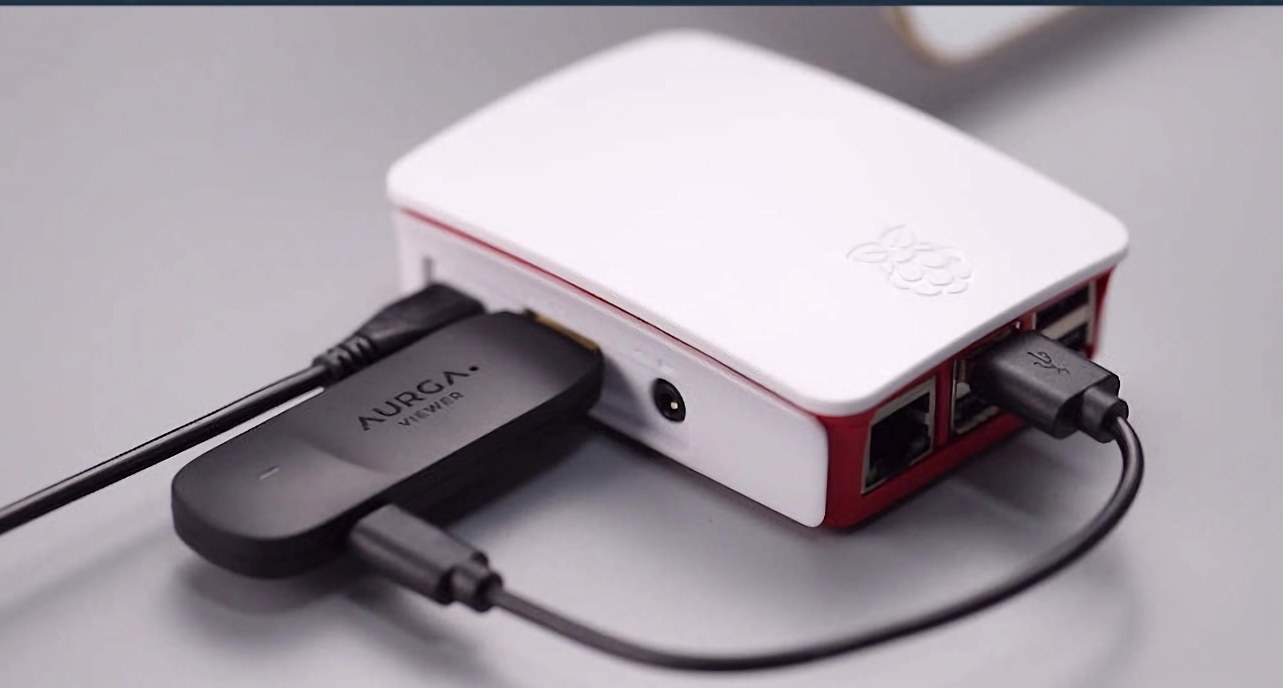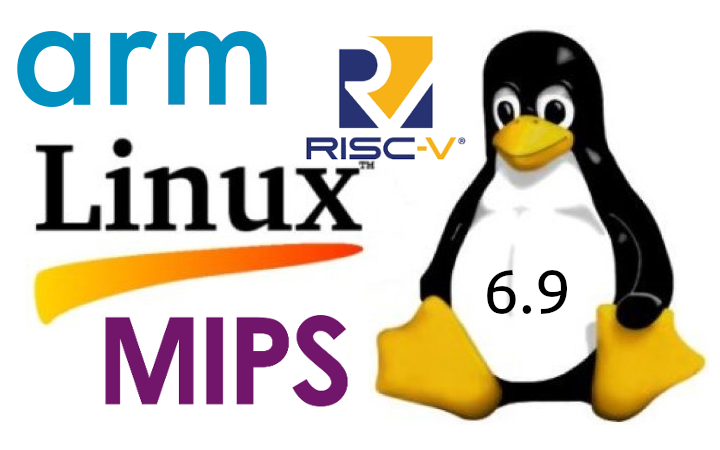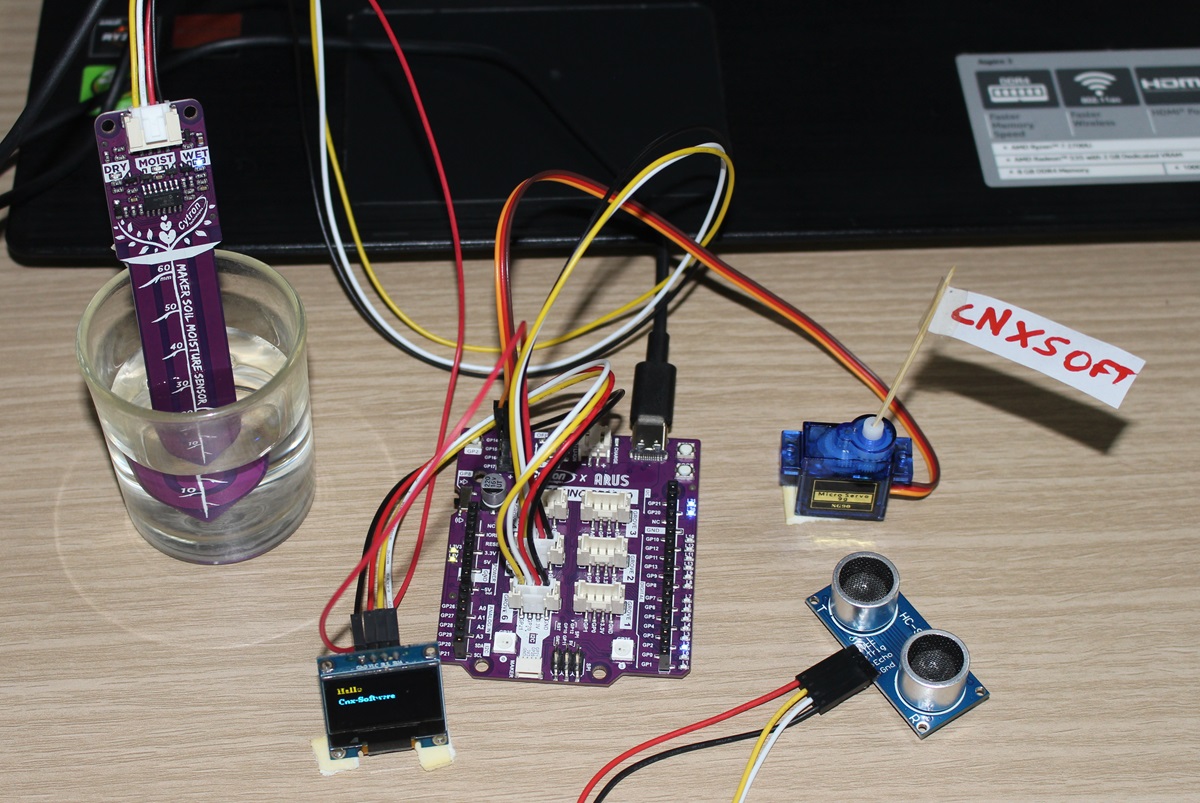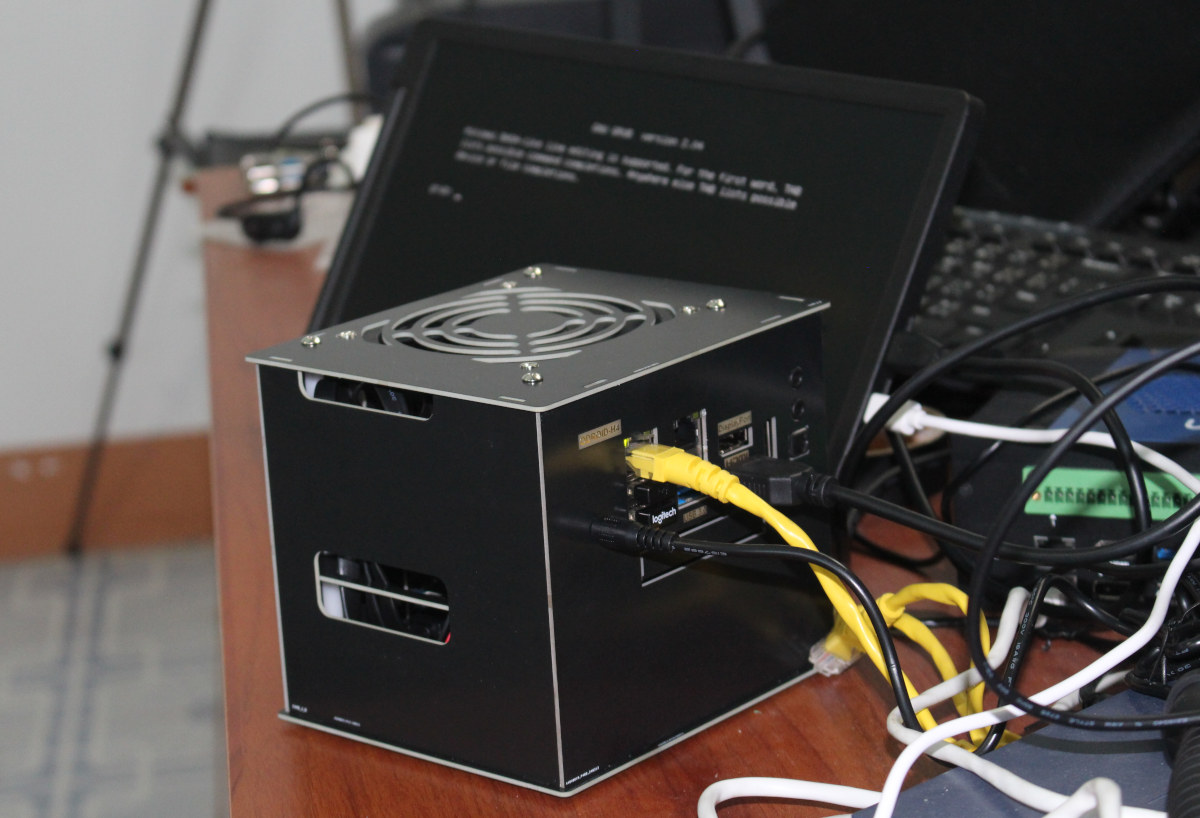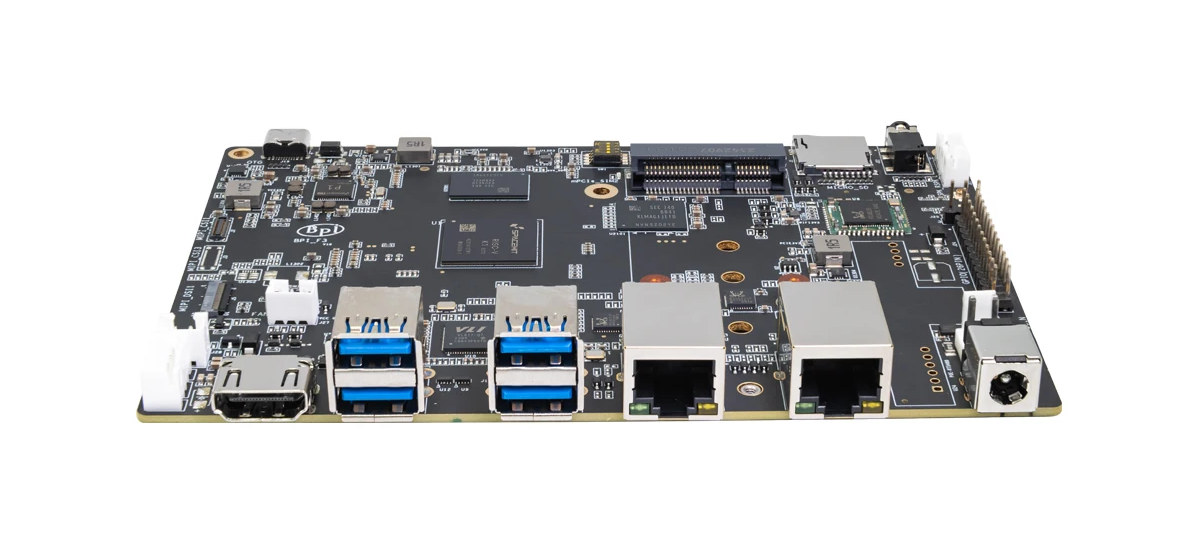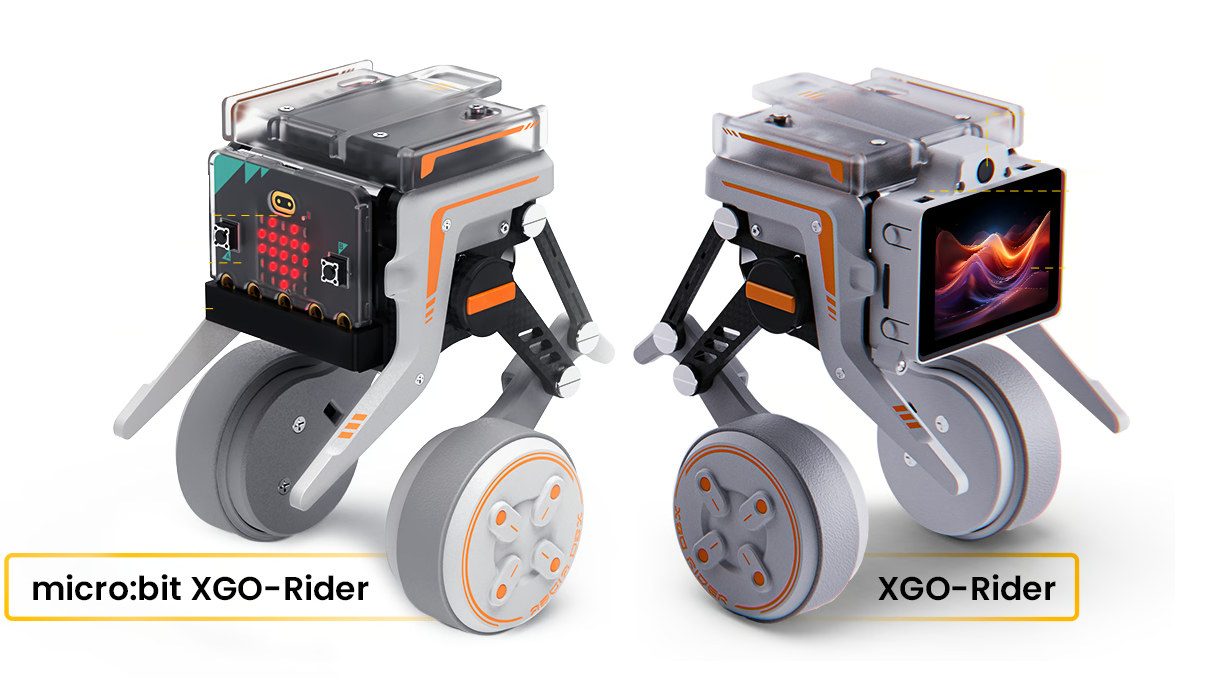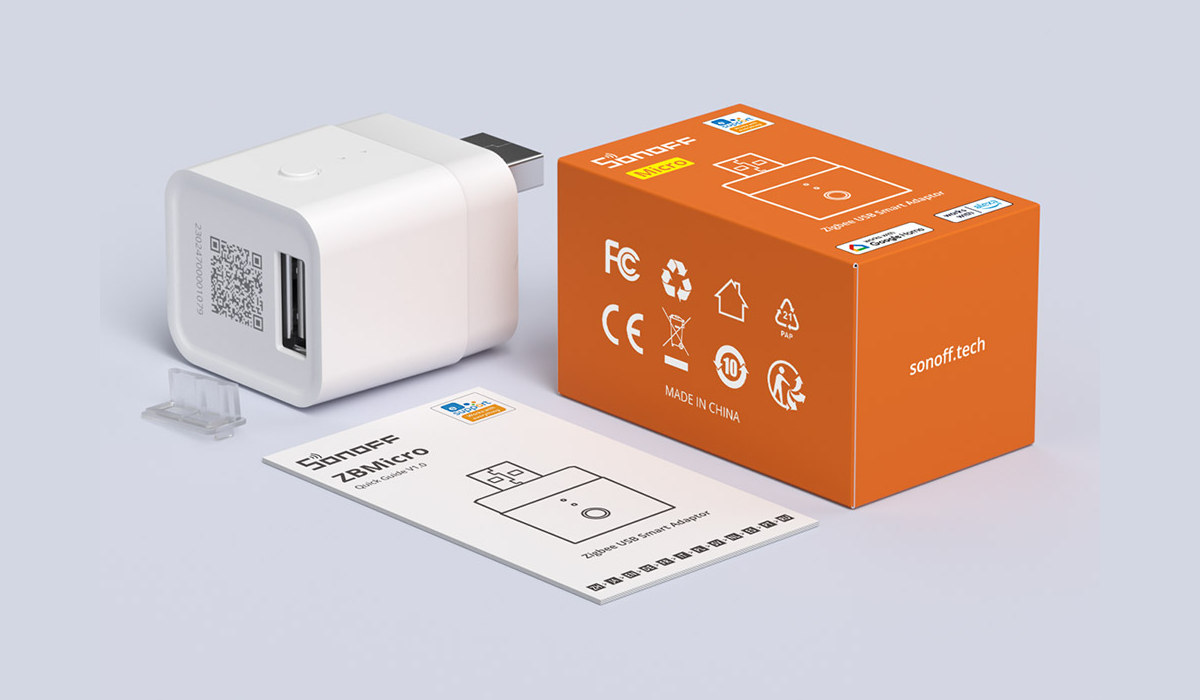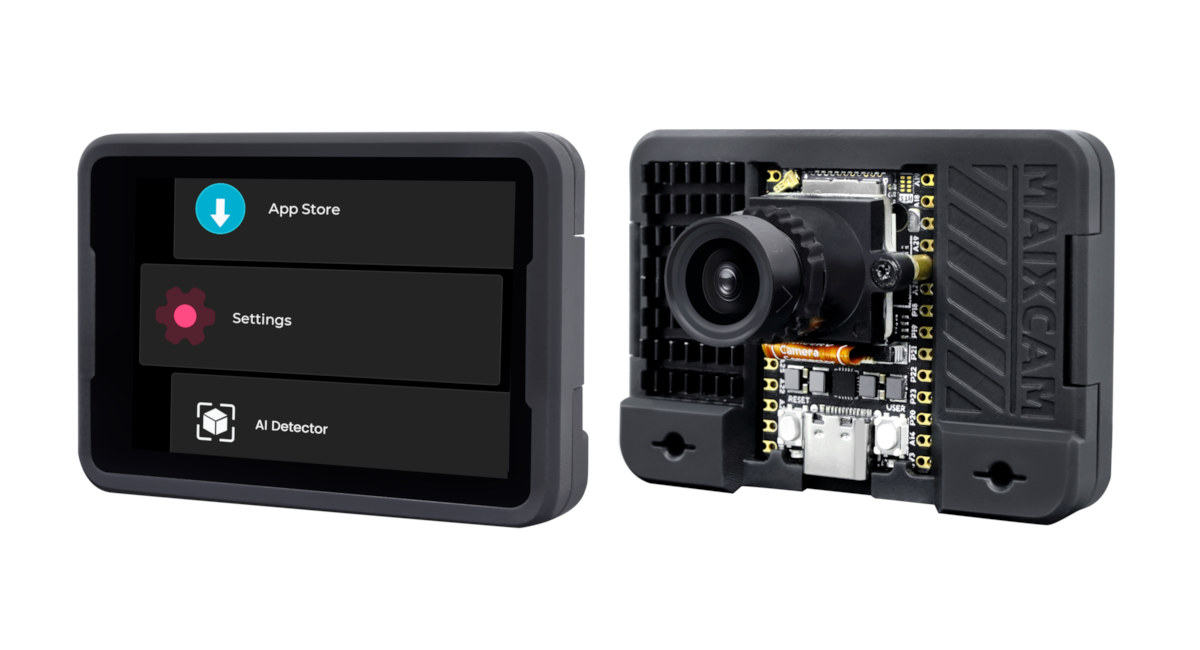The AURGA viewer is an HDMI and USB dongle with WiFi and Bluetooth connectivity that plugs into any system with HDMI output and can convert any smartphone, tablet, or laptop with a touchscreen display into a KVM solution by sending video data, as well as keyboard and mouse events wirelessly. We’ve recently written about Openterface Mini-KVM KVM-over-USB device that allows users to use their laptop to control another device with HDMI output locally without any additional display, keyboard, and mouse. But I’ve just been informed the AURGA Viewer, launched in 2022 on Kickstarter, can do something similar wirelessly. AURGA Viewer specifications and features: SoC – Allwinner S3 Cortex-A7 processor with 128MB DDR3 HDMI input – Male HDMI port with Toshiba TC35874x HDMI to MIPI CSI-2 bridge internally (See comments section); Works with VGA, mini HDMI, micro HDMI, etc… using adapters Wireless – Broadcom BCM4345C5 SDIO 802.11AC WiFi 5 and Bluetooth […]
Linux 6.9 release – Main changes, Arm, RISC-V, and MIPS architectures
Linus Torvalds has just announced the release of Linux 6.9 on LKML: So Thorsten is still reporting a few regression fixes that haven’t made it to me yet, but none of them look big or worrisome enough to delay the release for another week. We’ll have to backport them when they get resolved and hit upstream. So 6.9 is now out, and last week has looked quite stable (and the whole release has felt pretty normal). Below is the shortlog for the last week, with the changes mostly being dominated by some driver updates (gpu and networking being the big ones, but “big” is still pretty small, and there’s various other driver noise in there too). Outside of drivers, it’s some filesystem fixes (bcachefs still stands out, but ksmbd shows up too), some late selftest fixes, and some core networking fixes. And I now have a more powerful arm64 machine […]
Maker Uno RP2040 review with Arduino IDE using micro servo, soil moisture sensor, ultrasonic sensor, and I2C OLED modules
Today, We will review the Cytron Maker Uno RP2040 development board combining the Arduino UNO form factor with the Raspberry Pi RP2040 microcontroller that makes it programmable with the Arduino IDE (C/C++), Micropython, or CircuitPython. The board is suitable for both beginners and advanced users with a convenient port layout that includes a “Maker” connector plus six Grove connectors for sensor modules and a header for four servos besides the Arduino UNO headers. The board offers two power options: USB (5V) via the USB-C connector or a single-cell LiPo/Li-Ion battery via the LiPo connector. Cytron Maker Uno RP2040 specifications SoC – Raspberry Pi RP2040 dual-core Arm Cortex-M0+ processor @ up to 133 MHz with 264 KB SRAM Storage – 2MB flash USB – USB-C port for power and programming Expansion Arduino UNO headers for shields 6x Grove Ports (Digital I/O, PWM Output, UART, I2C, Analog Input) 1x Maker port compatible […]
ODROID-H4+ kit review – Part 1: Unboxing, H4 Type 3 case assembly, and first boot
I’ve just received a kit comprised of an ODROID-H4+ SBC along with a Type 3 enclosure taking up to four 2.5-inch SATA drives and related accessories for review. I’ll start with an unboxing, followed by an assembly guide, and a quick first boot in the first part of the review, before testing performance, features such as IBECC memory, power consumption, and more in the second part of the review. ODROID-H4+ kit unboxing The package I received included small packages for the “H4 Type 3” enclosure and the ODROID-H4 PLUS SBC, a 15V/4A (60W) power supply with US plug adapter, a large fan with screws, as well as four sets of SATA data and power cables. We’ve already provided the ODROID-H4, H4+, and H4 Ultra specifications in the announcement post, but let’s have another quick look at the Intel Processor N97 fanless SBC. The rear panel comes with a DC jack, […]
Banana Pi BPI-F3 SBC features SpacemIT K1 octa-core RISC-V AI SoC
Banana Pi BPI-F3 single board computer (SBC) is powered by the same SpacemiIT K1 octa-core 64-bit RISC-V SoC with 2TOP AI accelerator found in the upcoming Muse Book RISC-V laptop. The board comes with up to 4GB RAM and 16GB eMMC flash, supports NVMe or SATA storage via its M.2 socket, is equipped with HDMI and MIPI DSI display interfaces, two MPI CSI camera interfaces, two gigabit Ethernet ports, a WiFi 5 and Bluetooth 4.2 module, and can also take a PCIe module for 4G LTE cellular connectivity. Other features include four USB 3.0 Type-C ports, a microSD card slot, a 26-pin GPIO header, and optional support for PoE. Banana Pi BPI-F3 specifications: SoC – SpacemiT K1 CPU – 8-core X60 RISC-V processor with single-core performance equivalent to about 1.3x the performance of an Arm Cortex-A55 GPU – Imagination IMG BXE-2-32 with support for OpenCL 3.0, OpenGL ES3.2, Vulkan 1.2 […]
XGO-Rider is a 2-wheel self-balancing robot with an ESP32 controller plus either a Raspberry Pi CM4 or BBC Micro:bit (Crowdfunding)
XGO-Rider is a two-wheel self-balancing robot with an ESP32 controller for motor and servo control, USB-C charging, etc… and a choice between a Raspberry Pi CM4 module or a BBC Micro:bit board for display, audio, and camera (CM4-only). It’s not the first robot from Luwu Intelligence, since the company launched the XGO-Mini robot dog in 2021, followed by the XGO 2 Raspberry Pi CM4-powered desktop robotic dog with an arm which we reviewed last year. The new XGO-Rider builds on these earlier models but in a different form factor moving from four-legged robots to a 2-wheel self-balancing robot design with many of the same features including AI vision running on the Raspberry Pi CM4. XGO-Rider specifications: Host controller (one or the other) Raspberry Pi CM4 with 2GB RAM + ESP32 for main control, USB-C charging port, DIP switch BBC Micro:bit V2 + ESP32 for main control, USB-C charging port, DIP […]
SONOFF ZBMicro Zigbee USB smart adapter adds any USB device to your Smart Home setup
SONOFF Micro Zibgee USB Smart adapter, or SONOFF ZBMicro for shorts, is a Zigbee 3.0 USB adaptor to remotely control USB devices via your smartphone app or home automation solution based on Home Assistant or other solution to turn on/off the device, set timers to control charging times, configure smart scenes, or control with voice commands. The new home automation device from ITEAD is based on a Silicon Labs EFR32MG21 multiprotocol SoC, works with the usual eWelink app, as well as Home Assitant and OpenHAB open-source solutions when the server is fitted with a compatible Zigbee 3.0 USB dongle SONOFF ZBMicro specifications: Wireless MCU – Silicon Labs EFR32MG21 MCU core – Arm Cortex-M33 microcontroller @ 80 MHz Memory – 96KB SRAM Storage – 352KB flash, 1024KB ROM for protocols and library functions Wireless – Zigbee 3.0 USB – USB 2.0 Type-A port Misc User Button – single press: Turn on/off […]
Sipeed MaixCAM is a RISC-V AI camera devkit with up to 5MP camera, 2.3-inch color touchscreen display, GPIOs
Sipeed MaixCAM is an AI camera based on SOPHGO SG2002 RISC-V (and Arm, and 8051) SoC with a 1 TOPS NPU that takes up to 5MP camera modules and comes with a 2.3-inch color touchscreen display. The development kit also comes with WiFi 6 and BLE 5.4 connectivity, optional Ethernet, audio input and output ports, a USB Type-C port, and two 14-pin GPIO headers for expansion that makes it suitable for a range of computer vision, Smart audio, and AIoT applications. Sipeed MaixCAM specifications: SoC – SOPHGO SG2002 CPU 1 GHz RISC-V C906 processor or Arm Cortex-A53 core (selectable at boot) running Linux 700 MHz RISC-V C906 core running an RTOS 25 to 300 MHz low-power 8051 processor NPU – 1 TOPS @ INT8 with support for models such as Mobilenetv2, YOLOv5, YOLOv8, etc… Video Codec – H.264, H.265, MJPEG hardware encoding and decoding up to 2K @ 30fps Memory […]


